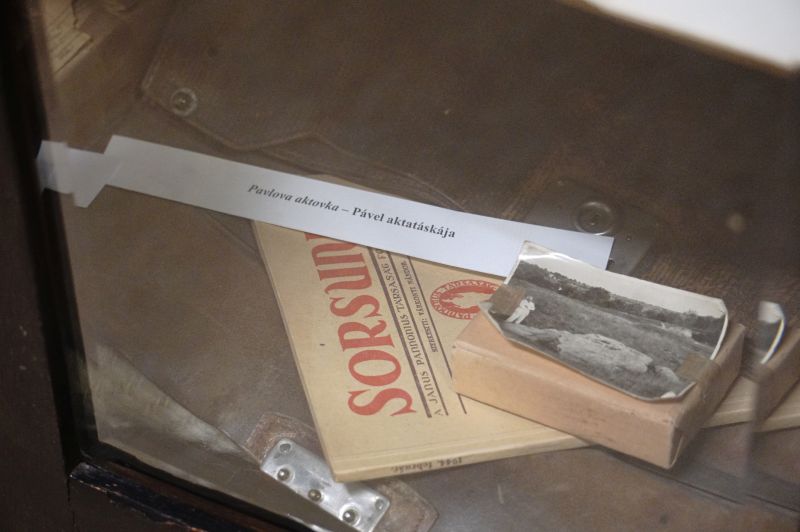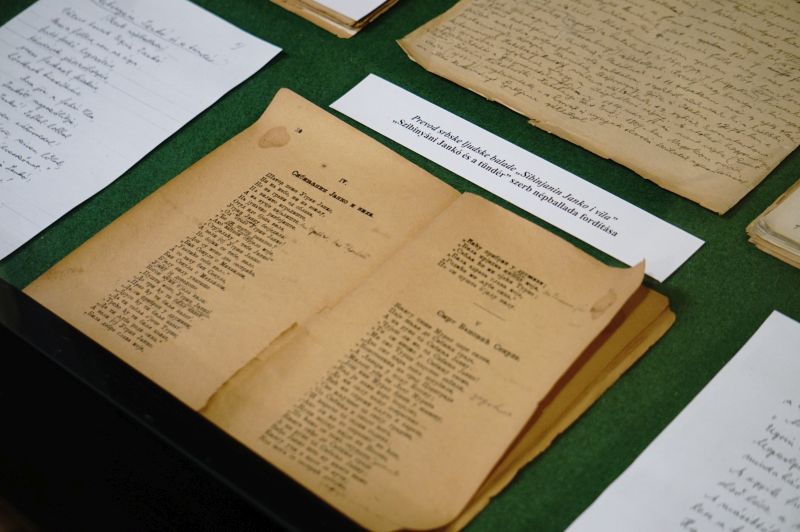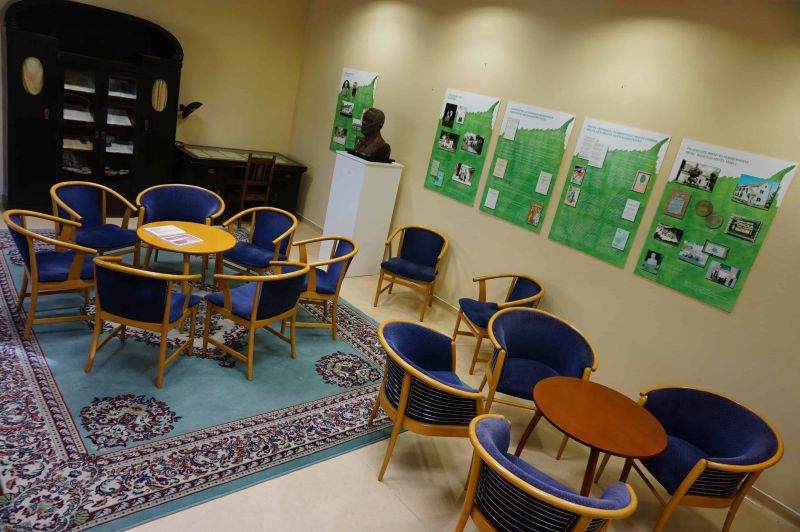Object of the month – Pável Memorial Room
In October 2006, the Berzsenyi Dániel College purchased Ágoston Pável's bookcase and desk from his daughter, Judit Simon Pável, to furnish the Pável Memorial Room. The Memory Room, currently located on the second floor of the Savaria Library and Archives of the ELTE University Library and Archives, features tableaux presenting the life and work of Ágoston Pável. In addition to the furniture and personal objects (briefcases, letters, ID cards), the Memorial Room also contains Ágoston Pável's dictionaries, his linguistic studies, poems and his translations.
Ágoston Pável (1886–1946) was one of the most prominent figures in the intellectual life of Vas County and the most famous Slovene in Hungary.
He was born into a Vend (Slovene) family, his mother tongue was Vend. He never denied his origins, always proud of his dual (Slovene and Hungarian) identity. To quote Gyula Illyés, Ágoston Pável is „the faithful son of two nations”. He graduated from the Premontrian Grammar School in Szombathely, and in 1905 he enrolled in the Hungarian-Latin department of Pázmány Péter University, but even there he was already deeply interested in Slavic philology. Already at that time, his writings on linguistics and his translations of fiction were published in many places.
He graduated in 1911 and received his doctorate in 1913 in Budapest. First he taught in Torda, then in Dombóvár, and finally in 1920 he returned to Szombathely and became a teacher at the State Girls' Secondary School.
From 1924 until his death he was the keeper of the library of the Szombathely Museum. During his activity, the books were categorised and the collection was continuously expanded (later the independent Szombathely library was established from this collection). The Friends of the Museums Association of Vas-Vármegye, founded in 1933, owes its existence mainly to Pável. In the same year, the association launched the journal Vasi Szemle, of which Pável became editor-in-chief. Between 1928 and 1942, he was the director of the ethnographic collection of the Museum in Szombathely. He was a member of the Hungarian Ethnographic Society. As a researcher, he was primarily concerned with the life of the Vend people and the cultural relations between the Vend and Hungarian people. He also played an important role in the ethnographic exploration of the Őrség.
In 1941, he was qualified as a private lecturer of South Slavic language and literature at the University of Szeged. Among his students was Albert Szent-Györgyi. Years later, the Nobel Prize-winning scientist still remembered Professor Pável with a warm heart.
He died young, on 2 January 1946.
His literary work:
His first literary efforts were published in his home village's newspaper, Bimbófüzés. In the 1930s he published two books of poems. Although he is not one of the most important Hungarian poets, his lyric poetry is remarkable, and he is not only respected by Hungarians and Slovenes in his native land, but also in Slovenia and even by Slovenes living in Austria.
Perhaps even more important than his poetry is his work as a translator. Ivan Cankar, the Slovenian novelist, is known in our country for his work.
Beyond his poetry and translations, he has also done much for Hungarian literature. As vice-president of the Ferenc Faludi Literary Society, he met almost all the leading intellectuals of the time. As a mentor, he helped many of them get their literary start. The most famous among them are Sándor Weöres, who was a student at Pávelék, as well as Erzsi Gazdag.
The Memorial Room also houses a plaster bust of Slovenian sculptor Ferenc Kühár, made in 1943 of Ágoston Pável.
Written by Bognárné dr. Lovász Katalin



